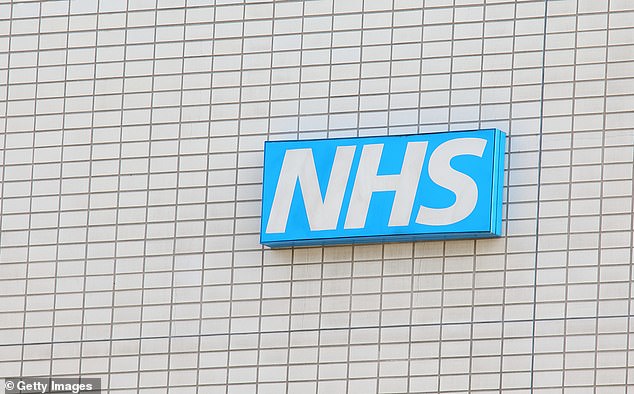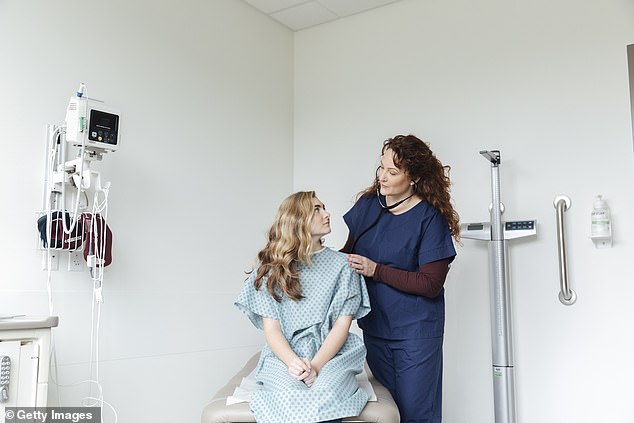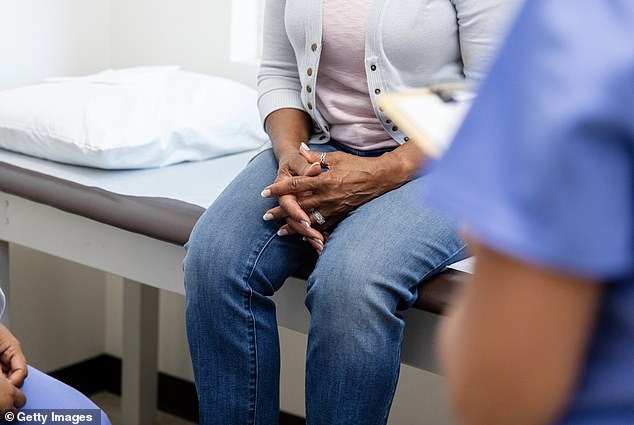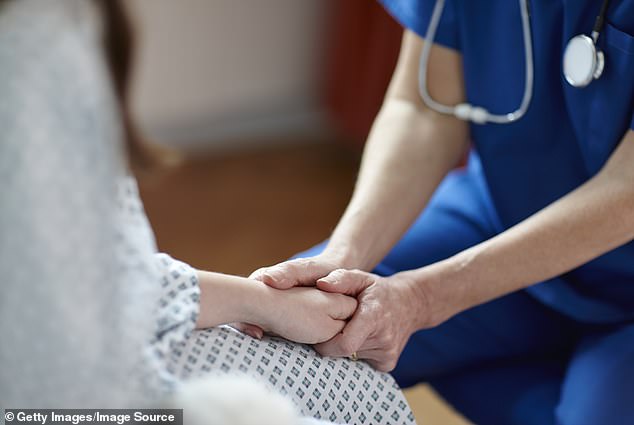Half of women believe the NHS treats their health as a second-class issue, a survey has found.
About 22 percent of the women strongly agreed with the damning verdict and 28 percent somewhat agreed, while only 20 percent disagreed.
The survey also found that one in four patients (23 per cent) have had a negative experience with an NHS professional in the last two years alone.
One in five said their problems were not taken seriously and many complained they felt dismissed or ignored.
And four in ten also said they find it difficult to get an appointment with their GP, and even when they are seen, only half (49 per cent) say the care they receive is good.
The survey also found that one in four patients (23 per cent) have had a negative experience with an NHS professional in the last two years alone.

A doctor talks to a patient in front of a laptop in a clinic. The survey of 2,000 British women revealed interesting information
The findings come amid growing evidence of a gender divide in treatment that is also costing the economy.
Praful Nargund, co-founder of the charity Create Health Foundation, which commissioned the survey from pollsters JL Partners, said: ‘The NHS was founded with the mission of providing treatment for everyone.
‘Today’s figures show we are failing this mission with women, who feel the NHS treats them like second-class citizens.
‘Women missing work due to conditions such as endometriosis and heavy periods are costing the economy £11bn a year.
“We are literally paying the price for making women suffer, for not treating their illnesses properly.”
She added: ‘We are at a crossroads. We can continue to neglect women’s health or make the right decision to prioritize the health and dignity of 51 percent of the population.’
The survey of 2,000 British women found that although almost half (43 per cent) of those who had experienced NHS maternity services said they had been treated very well, 16 per cent said they did not feel their baby was safe in NHS care.
The survey also showed that the majority of women (62 percent) had suffered a gynecological illness and almost one in three (30 percent) had to take time off work.

NHS National Health Service sign in London photo. The findings come amid growing evidence of a gender divide in treatment that is also costing the economy.

The survey found that although almost half (43 per cent) of those who had experienced NHS maternity services said they had been treated very well, 16 per cent said they did not feel their baby was safe in hospital care. NHS.

A woman clasps her hands during a conversation with two members of the medical staff. Last year, women’s health tsar Dame Lesley Regan admitted that the NHS is “failing women”.
But more than one in ten (12 per cent) say they have turned to the private sector for treatment, with the proportion rising to 19 per cent among younger women.
Many blamed NHS waiting lists for their decision and one in three had to dip into their savings to pay for care.
And a third of women said they experience pain that affects their daily life, yet four in ten (42 per cent) said the NHS did not provide adequate pain treatment.
A Department of Health and Social Care spokesperson said: “It is unacceptable that so many women are not receiving the gynecological and obstetric care they need.
“This Government is committed to prioritizing women’s health (and) will deliver the investment and reform needed to turn around the NHS, including tackling waiting lists with an extra 40,000 appointments a week.”
The previous Conservative administration set out a strategy for women’s health after a series of shocking official revelations in maternity hospitals.
Last year, women’s health tsar Dame Lesley Regan admitted that the NHS is “failing women”.
And recently, patient safety commissioner Henrietta Hughes warned that patients are too often dismissed as “difficult women.”


